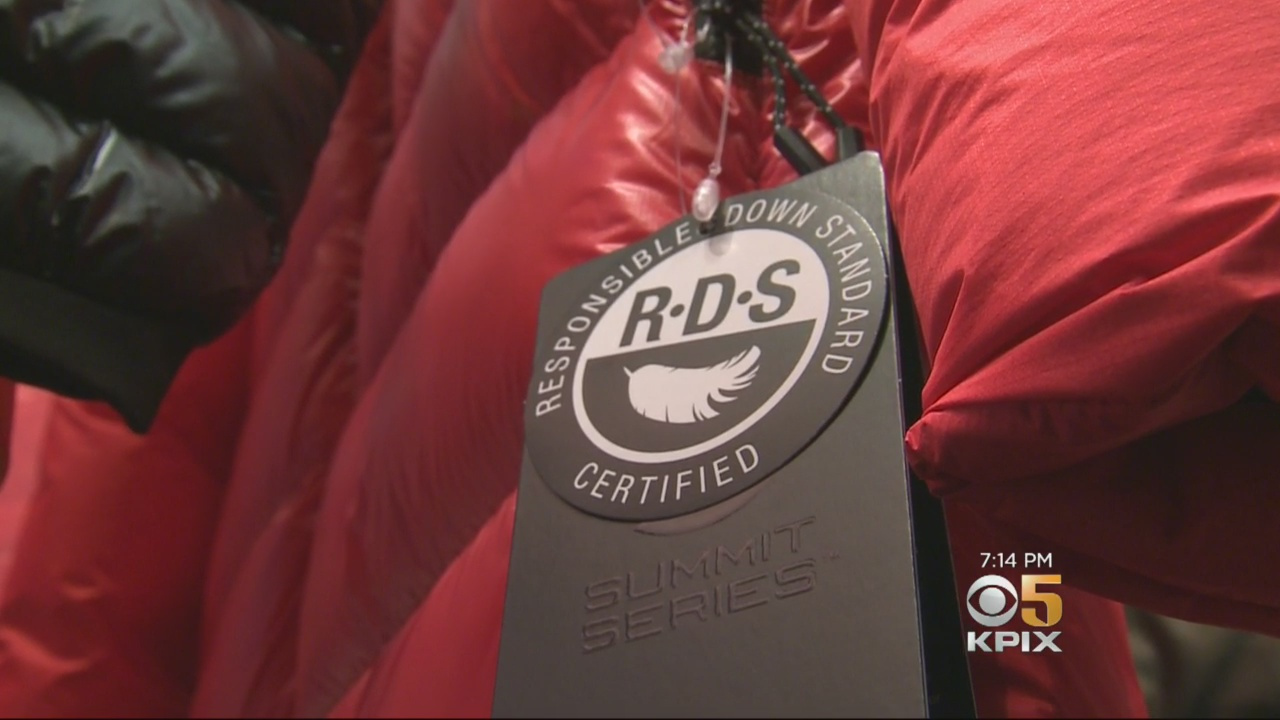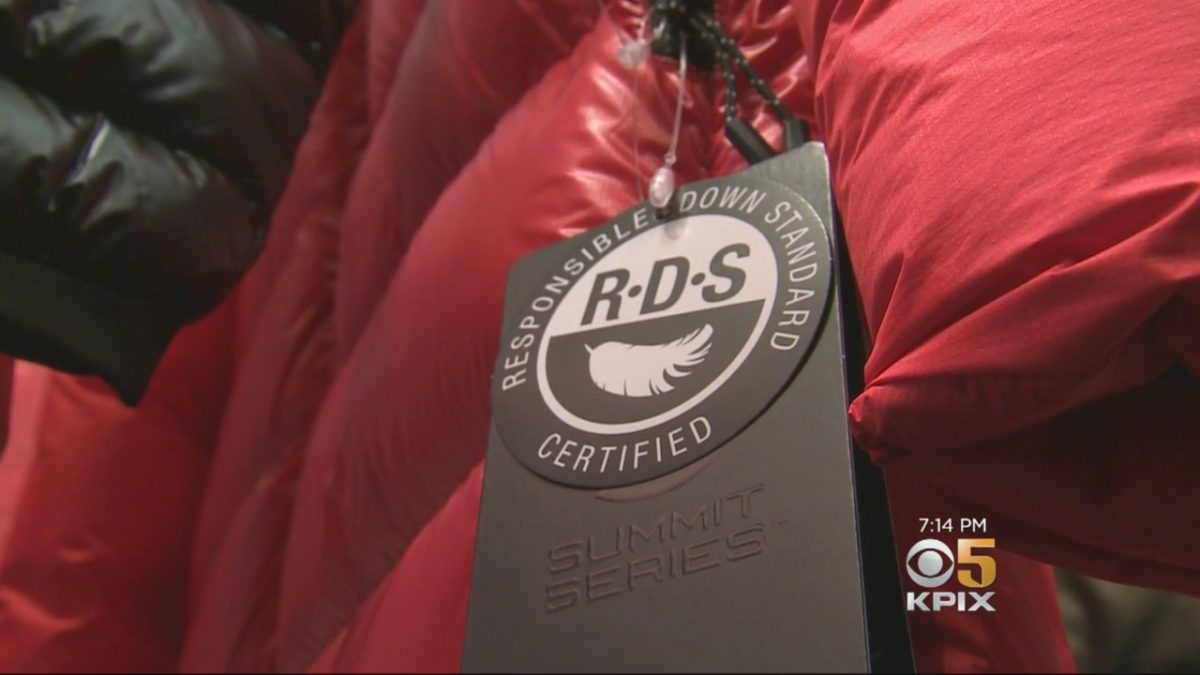
GONZALES (KPIX) — It’s something we don’t tend to think about as we bundle up in our down jackets: Were the feathers in it plucked humanely? Despite renewed efforts by the outdoor industry to trace the supply chain, one cruel practice continues.
Tags claiming “responsible down” are flooding the market, from jackets to comforters and pillows, all claiming to be ethically sourced. KPIX wanted to investigate whether consumers can trust the tag.
John Metzer’s duck and goose hatchery in the Central Valley sells hatchlings all over the country.
“We have 17 different breeds of ducks and 15 different breeds of geese,” said Metzer.
Half of the fowl will become ornamental pets in gardens. The other half are destined for the meat industry.
In the U.S., after slaughter, the birds’ down is collected as a byproduct and sold to the bedding and outdoor industry.
But in China, where 80 percent of the world’s down comes from, it is often a different story. A painful practice called “live-plucking” is unregulated there. That’s when ducks and geese are plucked while still alive multiple times to maximize profit and to feed the growing demand of the down market.
“We decided to do our own research and realized that yes there were some potential issues in our supply chain and we wanted to address those,“ said James Rogers, Sustainability Director for the North Face.
North Face came out with the first ethically sourced down standard in 2014, called the “Responsible Down Standard,” or RDS.
Through inspections and audits, the RDS traces down from farm to to factory to retail store to make sure it’s not coming from ducks or geese that were live plucked or force fed or treated inhumanely in any other ways.
“I think the unique thing about this standard is that we really set it up in a way that the entire industry could adopt it,” said Rogers.
The RDS label is now on everything from pillows and other bedding to jackets and sleeping bags. But critics say tracking the supply chain for this ethically sourced down is in reality almost impossible.
“Ethical down really is a unicorn,” said Lindsay Dadko with People for the Ethical Treatment of Animals. PETA conducted a follow up undercover investigation of the down industry in China in 2016, several years after the roll-out of the RDS.
“Unfortunately, eyewitnesses have gone into farms that are linked to facilities that are RDS certified where live-plucking is still occurring,” said Dadko.
She says the standard, though well-intentioned, has major flaws. Inspections are only once a year and announced in advance. And parent farms are not included in the inspections.
“The parent farms are the place where the birds are being bred, so animals there are living longer because they are breeding multiple times. So it’s a very common place for live-plucking to take place,” said Dadko.
“In these parent farms, it is true that the risk of live plucking is higher,” said Ashley Gill, Senior Manager of Industry Integrity at Textile Exchange, the global non-profit that worked with North Face to develop the Responsible Down Standard and now owns it.
“There is really no good info, right now, to know how frequently or how widespread the practice of parent farm live-plucking is. And the standard is looking at introducing confirmation visits,” said Gill. “So we are moving in that direction. The standard is revised on a regular basis. We are in the middle of a revision right now.”
In the meantime, Gill says she hopes consumers will continue supporting the label.
“When consumers purchase RDS material, they are sending a message that theses issues are important to them, and that they want to see change happen rather than just walking away and losing that influence,” explained Gill.
But some retailers say they are already seeing consumers turning to alternatives. At outdoor clothing and equipment company Marmot, Associate Manager of Sustainability Stephanie Domijan says their “featherless” line now makes up 60 percent of sales.
“It’s a high-loft synthetic insulation that almost equals down on a warmth per ounce basis. It has added benefits it’s 75 percent recycled and can retain warmth while wet, which is something that down cannot do,” said Domijan.
Ethical down or no down, animal activists and big corporations agree the new standards are a start and millions of birds have been spared from cruelty because of them. But consumers still can’t take too much comfort in the label.
“There is nothing that is 100 percent. I feel you have to have the faith and optimism that they are trying to do a good thing,” said duck and goose farmer John Metzer.
All the companies KPIX talked to still say down is the warmest option out there for the harshest conditions. And ethical down supporters point out down may also be a more environmentally friendly option.
Also it’s worth noting: Patagonia has stricter standards known as the Global Traceable Down Standard or GTDS.
It includes unannounced inspections and auditing of parent farms. But only Patagonia uses this standard, so it is followed by fewer suppliers.

